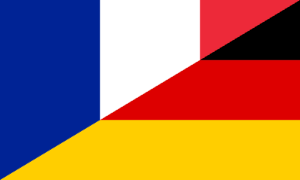
German Chancellor Olaf Scholz has said that Germany and France stand together on the side of Ukraine.
“Germany and France stand together for Ukraine as part of the European family. We stand for a European Union that stands for peace and freedom, for democracy and the rule of law,” Scholz wrote on Twitter on Tuesday night.
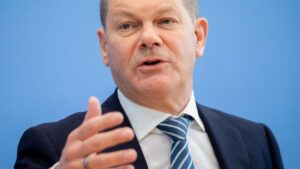
Germany, which recently provided Ukraine with a EUR150 million loan, is rapidly preparing another such loan, German Chancellor Olaf Scholz said at the High-Level International Donor Conference for Ukraine in Warsaw on Thursday.
“We will provide much-needed liquidity to the budget of Ukraine. Recently, a special loan of EUR150 million was allocated. Another loan of EUR150 million is being prepared on an accelerated basis,” he said.
Scholz added that, as part of bilateral development cooperation, Germany had already provided EUR122 million to Ukraine to address the economic and social consequences of the war. “And we intend to provide another EUR140 million for development financing,” the chancellor said.
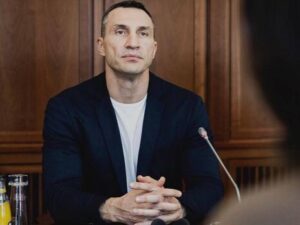
Ukraine needs to unite the position of the Europeans today, because this will achieve greater success and victory in the battle with Russia, believes boxer, brother of the mayor of Kyiv Vladimir Klitschko.
“The leader of Germany’s largest opposition party, the Christian Democratic Union, Friedrich Merz, was in Kyiv today. He met with the top leadership of Ukraine, met with the mayor of the capital. He expressed support and assured of further assistance to our state. And we are grateful for this. I am convinced that Ukraine today critically needs reliable and powerful partners, with whom it is necessary to talk, develop cooperation, be grateful for something, convince of something,” Klitschko wrote on Facebook on Wednesday.
He noted that Germany was concerned that Ukraine refused to accept German President Frank-Walter Steinmeier.
“The non-diplomatic statements of the Ukrainian ambassador to the German chancellor are also adding fuel to the fire. Now is not the time for emotions and excessive eloquence! I am sure that President Zelensky must nevertheless take a politically balanced step and invite the President of Germany, Ukraine’s strategic partner state, to Kyiv. We we need to unite the position of the Europeans today – this is how we will achieve greater success for our country and victory in the battle with the Russian aggressor,” Klitschko summed up.
In April, the German publication Bild, citing its own sources, reported that German President Frank-Walter Steinmeier planned to come to Kyiv along with government delegations from other EU countries, but Zelensky allegedly did not want to meet him because of the close ties of the German leader with Russia.
Later, Steinmeier himself said that Kyiv considered his possible visit to Ukraine undesirable, adding that Polish President Andrzej Duda had proposed a joint trip to Ukraine in recent days in order to “give a strong signal of European solidarity with Ukraine.”
Against this background, German Chancellor Olaf Scholz, according to the German edition Der Tagesspiegel, criticized Ukraine’s refusal to receive the German president on a visit, calling it “somewhat confusing” and urged not to underestimate the fact that Germany supplies Ukraine with anti-aircraft missiles and many other goods military purpose.
On April 13, President of Ukraine Volodymyr Zelensky said that the Office of the President of Ukraine had not received a request from the Office of the President of Germany regarding the visit of German leader Frank-Walter Steinmeier to Ukraine.
At the same time, he stressed that in the conditions of war and the daily death of people in Ukraine, she has the right to afford “to receive and be in the circle of those leaders of countries who really support her.”
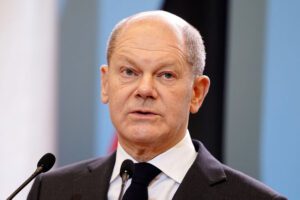
German Chancellor Olaf Scholz says that Germany supports Ukraine and “acts decisively.”
“Our goal must be that Ukraine can defend its sovereignty, its freedom and its democracy. We support them in this. We are acting prudently and adapting to the current situation. And we are acting decisively,” he tweeted.
As reported, Finance Minister Serhiy Marchenko said last week that preparations had recently begun for the next EUR150 million loan from Germany, which will help support Ukraine’s macro-financial stability.
According to him, only in the second half of April, Germany received a EUR150 million loan to support small and medium-sized businesses, an agreement on which was reached back in March 2020.
“Minister Christian Lindner also noted that they are considering providing us with military support in the amount of EUR1 billion, but we expected from Germany no less financial support than that provided by the UK, Canada or the United States,” Marchenko said.
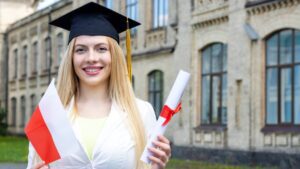
The Ministry of Education and Science says that Ukrainian students in Poland, Germany and Italy have the necessary conditions for learning.
“On April 26, 2022, the monitoring visit of the members of the Coordinating Headquarters for the Protection of the Rights of the Child under martial law to the EU countries ended … Monitoring the movement of Ukrainian children allows timely decisions to be made to protect the rights of children, organize the educational process and provide applicants with the necessary technical means,” the statement says. press release from the Ministry of Education.
It is noted that the results of the monitoring visit to Poland, Germany and Italy testify to the creation of all conditions for children temporarily displaced abroad. In particular, children are provided with the necessary means of education and continue to receive an education of the appropriate level.
“Students are involved in the educational process both in educational institutions and in institutions of Ukraine (remotely),” the message says.